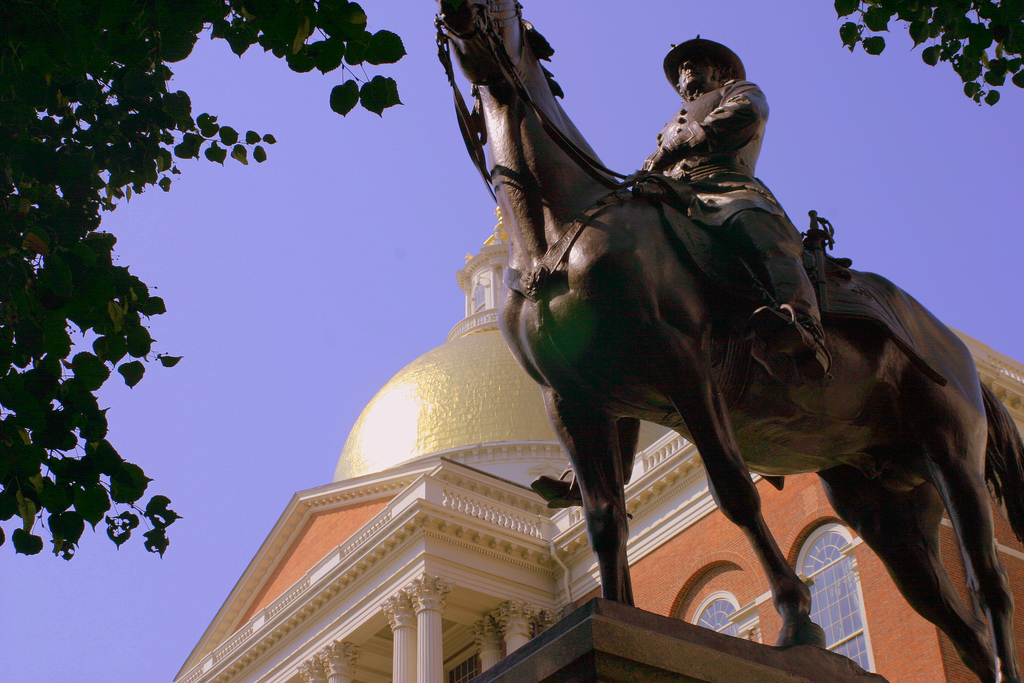About Publications Library Archives
cthl.org

Preserving American Heritage & History

Preserving American Heritage & History


One of the most immodest and immoral of the high Union commanders, “Fighting Joe” Hooker frequently felt slighted by his superiors and requested to be relieved of duty. The Massachusetts native and West Pointer (1837) had been posted to the artillery but was serving as a staff officer when he won three brevets in Mexico. Unfortunately for his later career he testified against Winfield Scott before a court of inquiry on the Mexican War. After a two-year leave he resigned on February 21, 1853, to settle in California where he was in the farming and land businesses.
At the outset of the Civil War he became a colonel of the state militia but soon offered his services to Washington where his anti-Scott testimony came back to haunt him. As a civilian he witnessed the disaster at lst Bull Run and wrote to Lincoln complaining of the mismanagement and advancing his own claim to a commission.
After leading a brigade and then a division around Washington he went with McClellan’s army to the Peninsula, earning a reputation for looking after his men during the siege operations at Yorktown. His other reputation as a heavy user of alcohol was not so enviable. He was particularly distinguished at Williamsburg and although he felt slighted by his commander’s report he was named a major general of volunteers from the date of the action. Further fighting for Hooker came at Seven Pines and throughout the Seven Days. Following its close he scored a minor success in the retaking of Malvern Hill from the Confederates. Transferred to Pope with his division, he took part in the defeat at 2nd Bull Run.
Given command of a corps for the Maryland Campaign, he fought at South Mountain and was wounded in the foot early in the morning fighting at Antietam. Three days later he was named a regular army brigadier general. Returning to duty, he briefly commanded the 5th Corps before being given charge of the Center Grand Division when Burnside reorganized his army into these two-corps formations. After the defeat at Fredericksburg and the disastrous Mud March, Burnside was relieved. In a letter to the Army of the Potomac’s new commander, Hooker, Lincoln praised the general’s fighting abilities but strongly questioned Hooker’s previous criticism of commanders and feared that this might come back to haunt the new chief. Lincoln was also critical of the general’s loose talk on the need for a military dictatorship to win the war.
Once in charge, Hooker’s headquarters were roundly criticized by many as a combination of bar and brothel. When he launched his campaign against Lee, Hooker swore off liquor. This may have hurt more than it helped. After a brilliantly executed maneuver around Lee’s flank and the crossing of two rivers, Hooker lost his nerve and withdrew his forces back into the Wilderness to await reinforcements from John Sedgewick’s command coming from Fredericksburg. Here he felt convinced that Lee was in retreat but was surprised by Jackson’s flank attack, which routed Oliver 0. Howard’s 11th Corps. To make matters worse Hooker was dazed by the effects of a shell striking a pillar on the porch of his headquarters. He lost control of the army and ordered a withdrawal.
Kept in command, he led the army northward in the early part of the Gettysburg Campaign until he resigned on June 28, 1863, over control of the garrison at Harpers Ferry. On January 28, 1864, he received the Thanks of Congress for the beginnings of the campaign. With the Union defeat at Chickamauga, he was given charge of the Armv of the Potomac’s 1lth and 12th Corps and sent to the relief of the Army of the Cumberland at Chattanooga. In the battles around that place in November 1863 he did well in keeping open the supply lines and in the taking of Lookout Mountain. However, in Grant’s report his actions were overshadowed by the less distinguished role of Sherman. The next spring the two corps were merged into the new 20th Corps with Hooker at their head. He fought through the Atlanta Campaign but when McPherson was killed before the city and Howard received command of the Army of the Tennessee, he asked to be relieved. This was granted and he finished the war in the quiet sector of Michigan, Ohio, Indiana, and Illinois.
Brevetted major general in the regular army for Chattanooga, he was mustered out of the volunteers on September 1, 1866, and two years later was retired with the increased rank of major general. Always popular with his men, he lacked the confidence of his subordinate officers and was quarrelsome with his superiors. His nickname, which he never liked, resulted from the deletion of a dash in a journalistic dispatch that was discussing the Peninsula Campaign and “Fighting” was thereafter linked to his name. Popular legend has it that his name was permanently attached to prostitutes from his Civil War actions in rounding them up in one area of Washington. He died in Garden City, New York, on October 31, 1879, and is buried in Cincinnati.
(Herbert, Walter H., Fighting Joe Hooker)